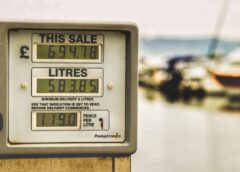Porsche have announced their plans to begin production of carbon neutral fuels in a genius attempt to change the world. The production of these fuels will be almost completely carbon neutral and may open a new path into a greener world of transport.
In late 2020, Porsche stated that they have invested over 1 billion Euros into the production of a newly discovered environmentally friendly fuel: synthetic fuels. The first production site has begun springing up in the South of Chile and is estimated to produce 130,000 litres annually of this fuel. By the mid-2020s, it is predicted that Porsche are to produce around 5 times this much and by 2030 10 times this much. But what exactly are synthetic fuels, and are these fuels a better solution than electric?
Synthetic fuels are fuels which have been made from the process of creating a chemical reaction between carbon dioxide and hydrogen. This can be beneficial to a greener future due to the abundance of the two gases. Hydrogen is extremely easy to obtain due to it being the most common gas in the atmosphere. Obtaining CO2 can be simply done by capturing the gas out of factories using fossil fuels. Another way to obtain hydrogen is through the electrifying of water to produce hydrogen and oxygen gas. This electricity can be generated through wind, solar or tidal energy systems. Research and development executive for Porsche said, “The potential of eFuels Is huge. There are currently more than 1.3 billion vehicles with combustion engines worldwide. Many of these will be on the roads for decades to come, and eFuels offer the owners a nearly carbon neutral alternative.” (Autocar).
There are many benefits surrounding synthetic fuel production, such as the fuels can be used in unmodified combustion engines and can easily replace normal petrol and diesel storage. Due to the easy and efficient production techniques of the fuels, Porsche have stated that they could produce around 130,000 litres annually from a single plant, like the one in Chile. They also plan to ramp up their production by 5 times midway through the decade and by around 10 times in the 2030s.
Synthetic or electric: which one? After stating a few of the many benefits of synthetic fuels, it would be sensible to compare the two and evaluate whether the change in course to synthetic was really worth it. Electric cars in themselves are great. They produce almost no obnoxious engine sound and are completely carbon neutral. They have many futuristic looks and may have a positive future ahead if used appropriately. Many governments have a lot of trust behind these machines such as the UK government. They have claimed that the country will aim to have green electricity and transport by 2030.
Despite this, electric cars have some fairly troublesome cons. They all use lithium metal, which is an exceptionally rare material only found in a few places, all of which are claimed already by various countries. These enormous mines require resources to run, and one of the most important things is fuel. Fuel is needed for lithium and all the other various rare metals inside electric cars. This fuel would almost always require vast amounts of fossil fuels to power the huge machines inside the mine. This may be where synthetic fuels come in and replace the fuel churning trucks operating in and around the mines.
There are still a few problems with the conversion from fossil fuels over to synthetics. A main factor is jobs. Thousands of people rely on the production of fuel and the mining of the easily obtainable resources. If the fossil fuel industry were to be rapidly taken down, many people would be without income and may quickly enter an awful state of poverty.
So it’s up to the new generation to decide: electric, synthetic or fossil fuels. What will you choose and why?
By Max
Carres Grammar School Newsroom

An very interesting point and a good idea 👍
Interesting idea hopefully it will go to plan.
Great point and could lead to something better. Well done Max. 💪
Can’t wait to see how this turns out!